Making a difference
Almost 30 per cent of people in the UK volunteer for charities or good causes at least once a year – and dispensing opticians (DOs) are among those doing their bit.
From helping homeless people to get the spectacles they need, to travelling to places with no access to eyecare or speaking at school careers evenings, practices are helping out their communities up and down the country – and beyond. We speak to DOs making a difference.
Christmas spirit with Crisis
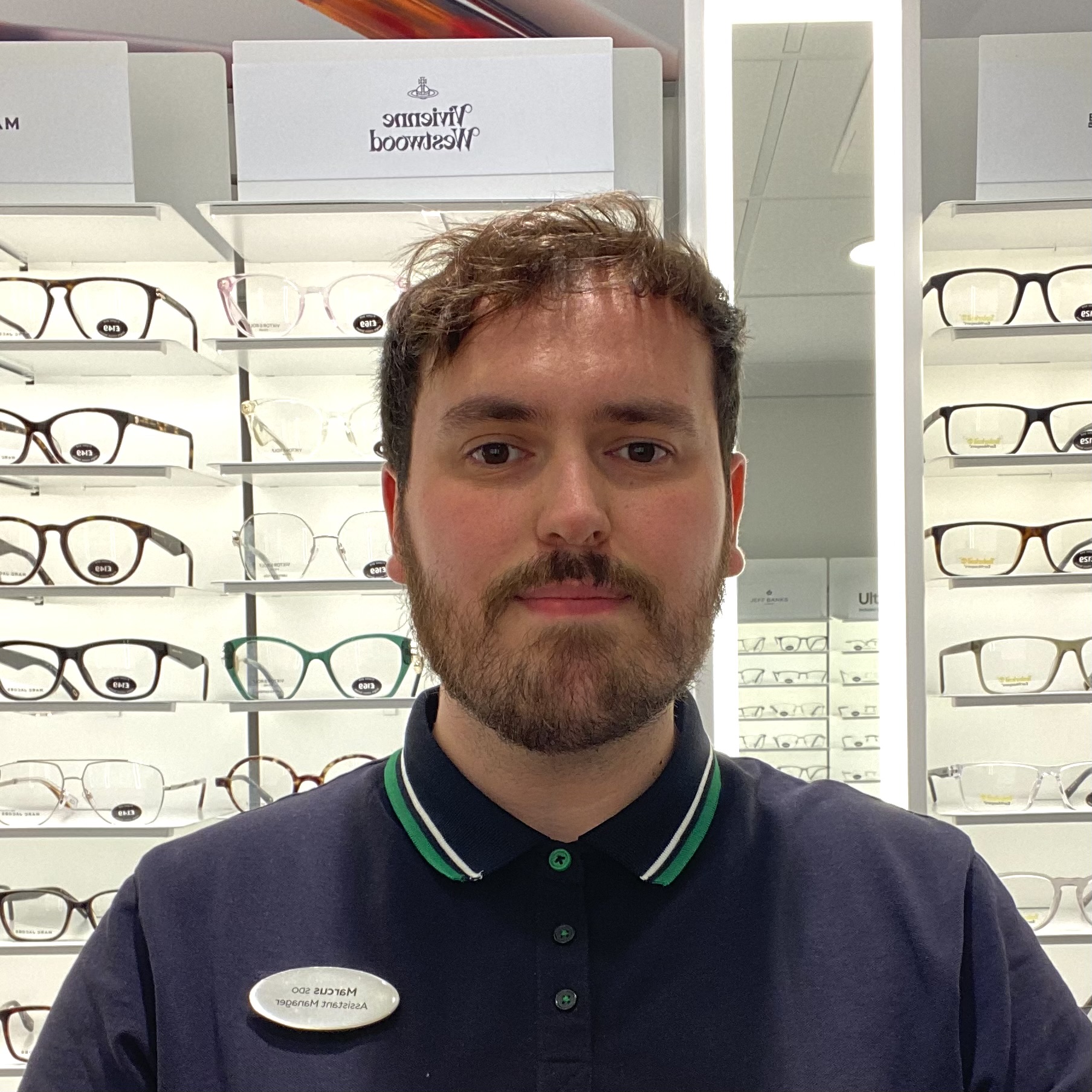
Marcus Regan
“You’re working with some of the most vulnerable people but it’s an overwhelmingly positive experience – and everyone’s in very high spirits,” says Marcus Regan, the manager at Specsavers in Islington, north London and a trainee DO. Marcus is looking forward to volunteering for the second year running for Crisis at Christmas, which supports homeless people.
Last year, Marcus was based at a day centre in Hackney, east London: “There was Christmas music playing, lots of festive food and people wearing Christmas jumpers. There were films and craft sessions, as well as a GP and volunteers offering lifestyle advice. It was a really inspiring day.”
An optometrist performed around 14 eye examinations while Marcus dispensed prescription spectacles, including bifocals and reading glasses. “It was really humbling to see people who were so grateful for the experience,” he says. “Some received their first ever sight test. A lot of them were in receipt of benefits but they didn’t know they were entitled to free tests and NHS vouchers for spectacles.”
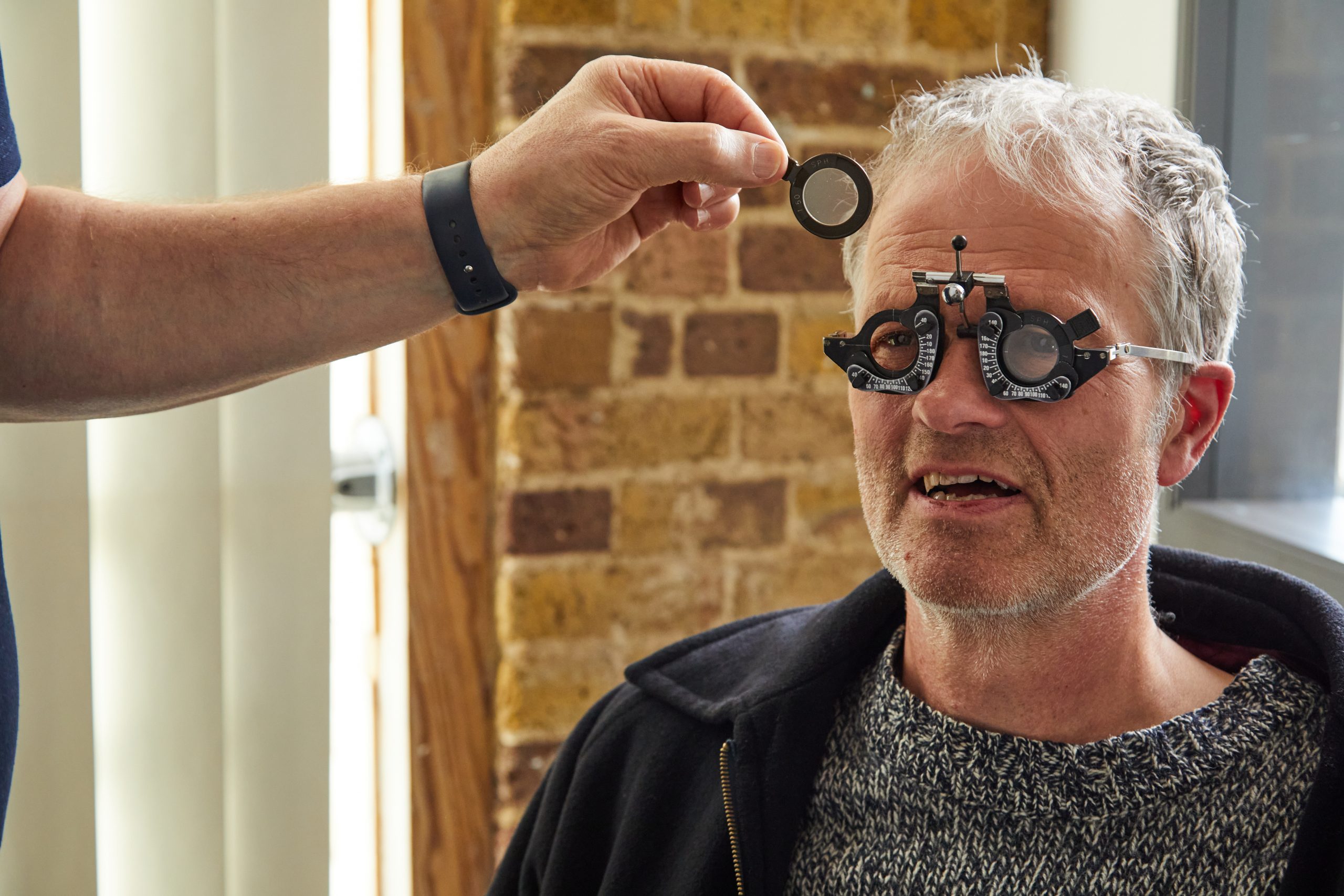
Supporting Crisis at Christmas
With Specsavers donating the frames, Marcus managed to dispense to many people on the day. More complex prescriptions were made up in a lab, which provided its services for free. Patients were able to collect these spectacles two weeks later.
Marcus also repaired and adjusted eyewear, and fielded questions about sight and eye health. “It gave me an insight into a different way of dispensing. You don’t have to consider price – you are purely focusing on the patient in front of you.”
Crisis works across Britain all year round, supporting 7,000 homeless people. In London, it provides accommodation for up to 600 rough sleepers, as well as three day centres for people living in hostels and B&Bs. The chartiy needs volunteer DOs, optometrists and ophthalmologists to sign up for London this year. Outside the capital most slots have been filled.
Marcus says: “It’s a very easy decision to make to volunteer. I’ll be doing it for many years to come. If you are interested in volunteering, I’d say go for it. You’ll have a fantastic day and make a real difference.”
In 2022, Crisis provided 157 eyecare appointments and 101 sight tests. Specsavers supports the charity and runs free eyecare and hearing care clinics at Crisis Skylights advice centres. This year, Crisis needs DOs, optometrists and ophthalmologists to volunteer at its London-based services. For more information on each of the roles available, and to sign up, click here.
A right to sight
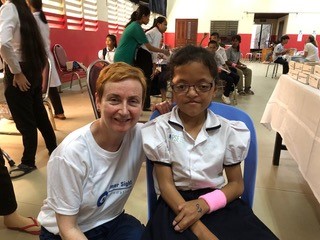
Roisin Mackie with a young patient
Dr Scott Mackie, a DO and optometrist, is the co-owner of Mackie Opticians in Bothwell, near Glasgow, along with his optometrist wife Dr Roisin Mackie. Both ABDO (Hons) LVA holders, they travel to India to run Right to Sight eye camps, providing sight tests and spectacles.
“The leading cause of avoidable blindness in the world isn’t eye disease,” says Scott. “It’s the lack of access to glasses. You give people a pair and they can see to read, to do their job, look after their family and survive.”
This year the couple visited Cambodia, helping the Khmer Sight Foundation to set up the first eyecare screening clinic in the country. Right to Sight’s volunteer ophthalmologists, optometrists and DOs “jump on a plane and run clinics, refracting as many people as we can in three or four days. We’ve all made our living from optics so we want to give something back”.
On most trips, the team consists of around eight eyecare practitioners. The volunteers contribute £1,000 each to their airfares and accommodation is provided by partners in the country. In Cambodia, people develop presbyopia 10 years younger than in the UK, so reading glasses are important. Many children have never had a sight test.
“There isn’t one optician in the whole country,” says Scott. “They have refracting centres, with an autorefractor. But with children that’s a bad idea as it tends to over-accommodate. They may be plus two but the machine says they are minus six so they get the wrong glasses.”
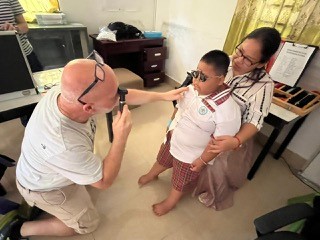
Dr Scott Mackie testing vision
Right to Sight has provided “probably in the region of 40,000″ spectacles over the last decade. They are donated by patients leaving their old pairs in collecting boxes at the practice, by supporting colleagues around the country and local charities.
Inmates at Barlinnie prison in Glasgow sort through the frames, which has the benefit of sustainability. The volunteers get the satisfaction of changing lives, as well as developing close friendships as a team and enjoying a warm welcome from people in the host country.
This year, Scott and his team visited the historic Golden Temple in Amritsar in the Punjab and helped to cook some of the 30,000 meals a day served there for free. “It’s a cultural experience but there’s also incredible camaraderie. You are surrounded by mates and really looked after by the hosts.”
Find out more about Right to Sight here.
“Her face just lit up”
Richard Goring is a DO and partner at Specsavers in Frome, Somerset, and Warminster, South Wiltshire. He’s volunteered for Vision Action (previously VIsion Aid Overseas) since 2013.
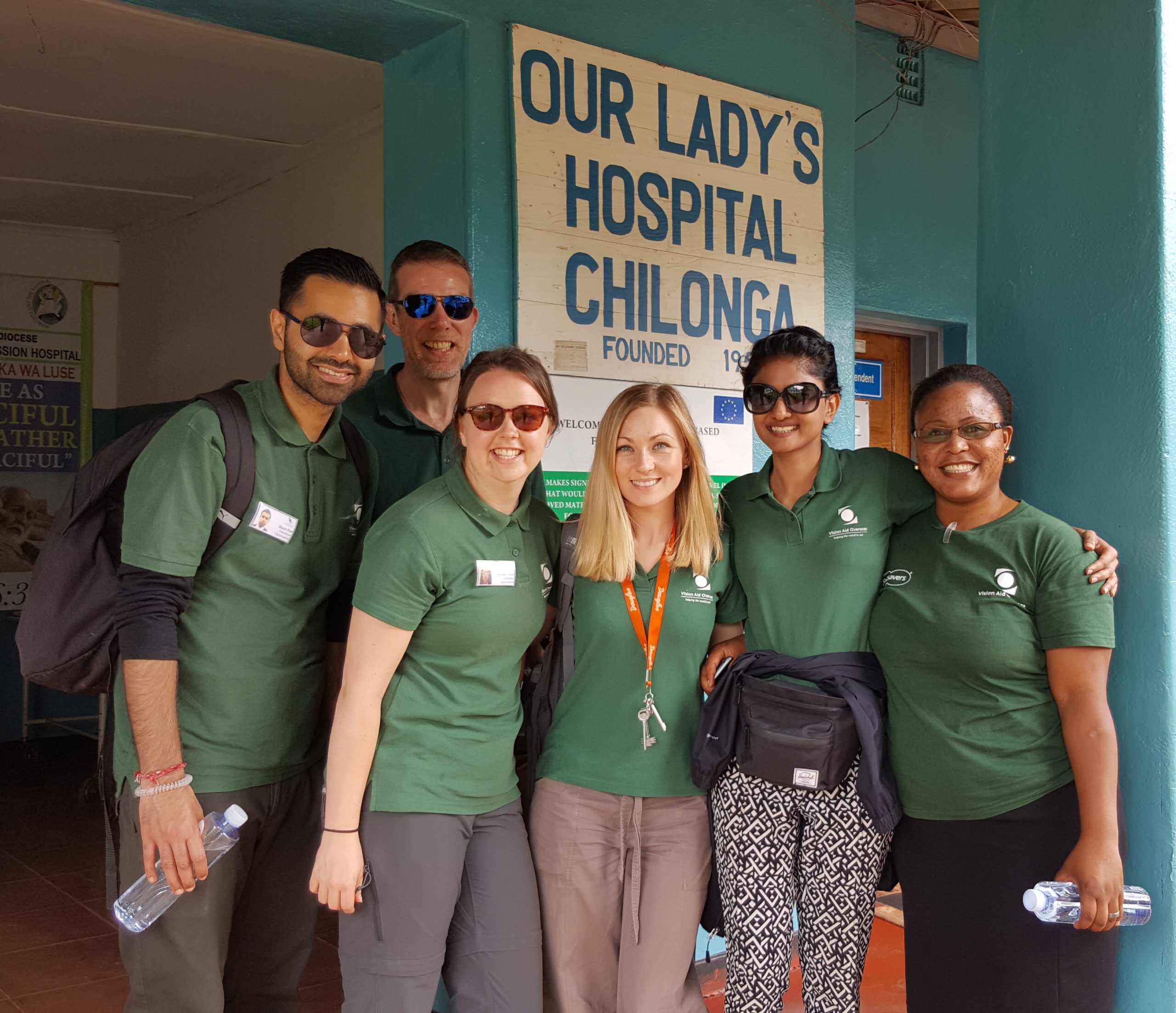
Richard Goring (second left) with fellow Vision Action volunteers
Richard’s first trip was to Botswana. He recalls: “There was an 80-year-old woman who was minus 10. She’d never had spectacles – she worked as seamstress and for anything beyond close up work, her family acted as her eyes. When she put spectacles on, her face just lit up. You get the Vision Action smile – she was seeing the world clearly for the first time.
“In Ethiopia in 2014, we found a 10-year-old girl with a prescription of minus 12. Imagine what a difference spectacles make to her education and quality of life.”
There wasn’t anything ready-made to fit her prescription so Richard brought her order back to the UK and sent the spectacles out to the practice that he’d worked with locally. “They sent back a picture of her wearing the spectacles, which was wonderful to see.”
In Botswana, Richard worked with a team of four optometrists and a contact lens optician to set up a vision centre, including a glazing lab and dispensary. “It was great to be able to share my knowledge, training local people in dispensing and glazing so that the service is sustainable after we leave.
“I’ve run outreach clinics in remote areas of Zambia and Ethiopia, where people can’t access eyecare at all. We turned up in one place and there were 300 people waiting. It was quite overwhelming. We managed to see around 100 people that day.
“We set up a room, covering the windows with black bags. We had five rows of people all seeing optometrists at the same time. You feel tired but elated when you get through a long day. There were so many needing help that we arranged with the local hospital to come out for a weekly visit to get through the list.”
In Ghana there was only one vision centre for the whole north of the country. Richard helped to set up a new centre, upskilling and refreshing the knowledge of Ghanaian DOs and optometrists to make it a sustainable business.
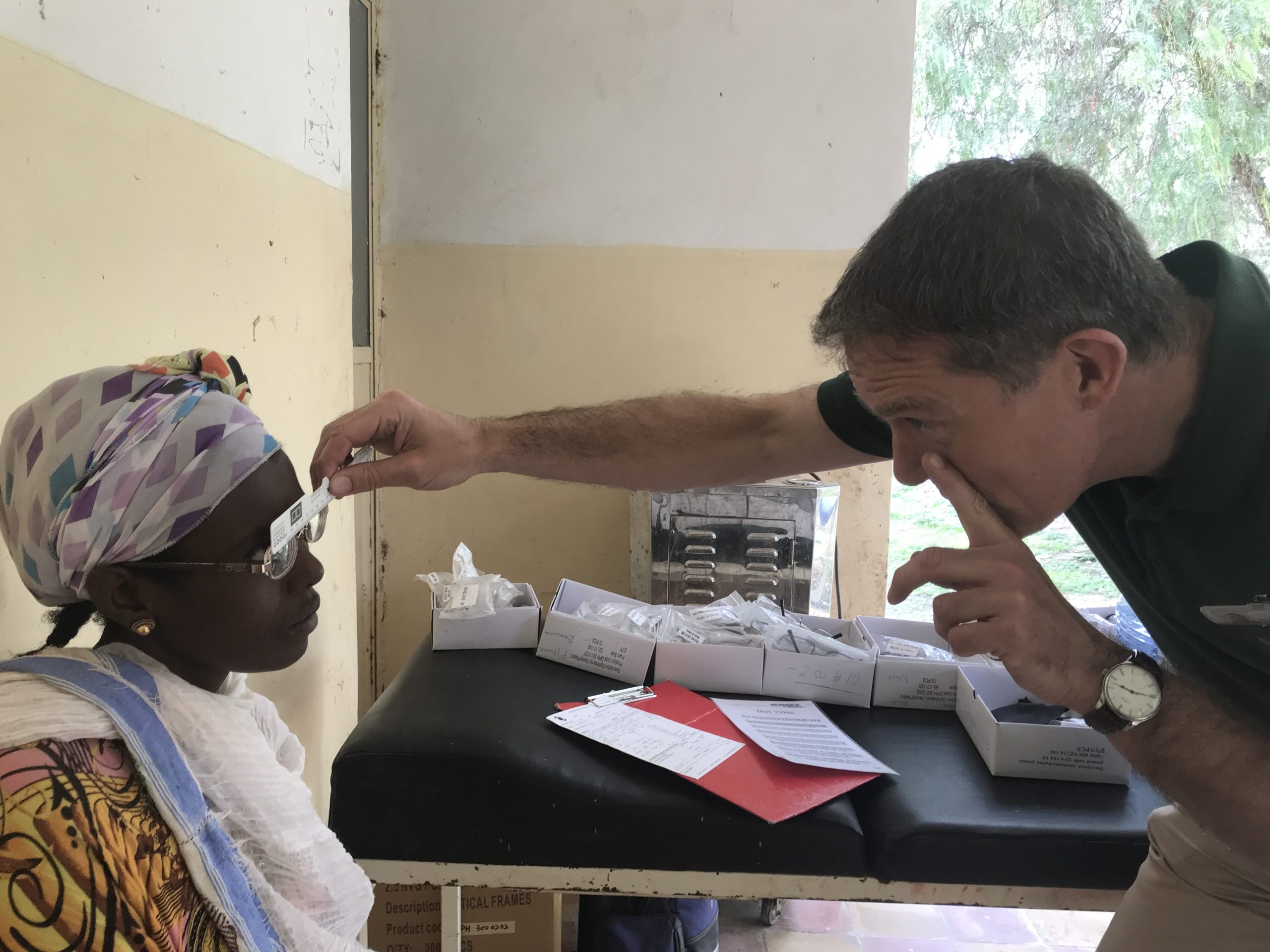
Richard taking some measurements
But you don’t have to travel long distances to make a difference. Vision Action has created a new business management programme, with remote support from volunteers in the UK.
“We want to make vision centres sustainable,” Richard explains. “You have to develop the understanding of issues such as stock management and promoting the service. When I was out in Ghana I did a few interviews with radio stations for a publicity campaign, explaining the benefits of the service.
“If you are interested in volunteering, just get in touch with Vision Action and look at their training programmes,” Richard adds.
Information on volunteering with Vision Action can be found here.